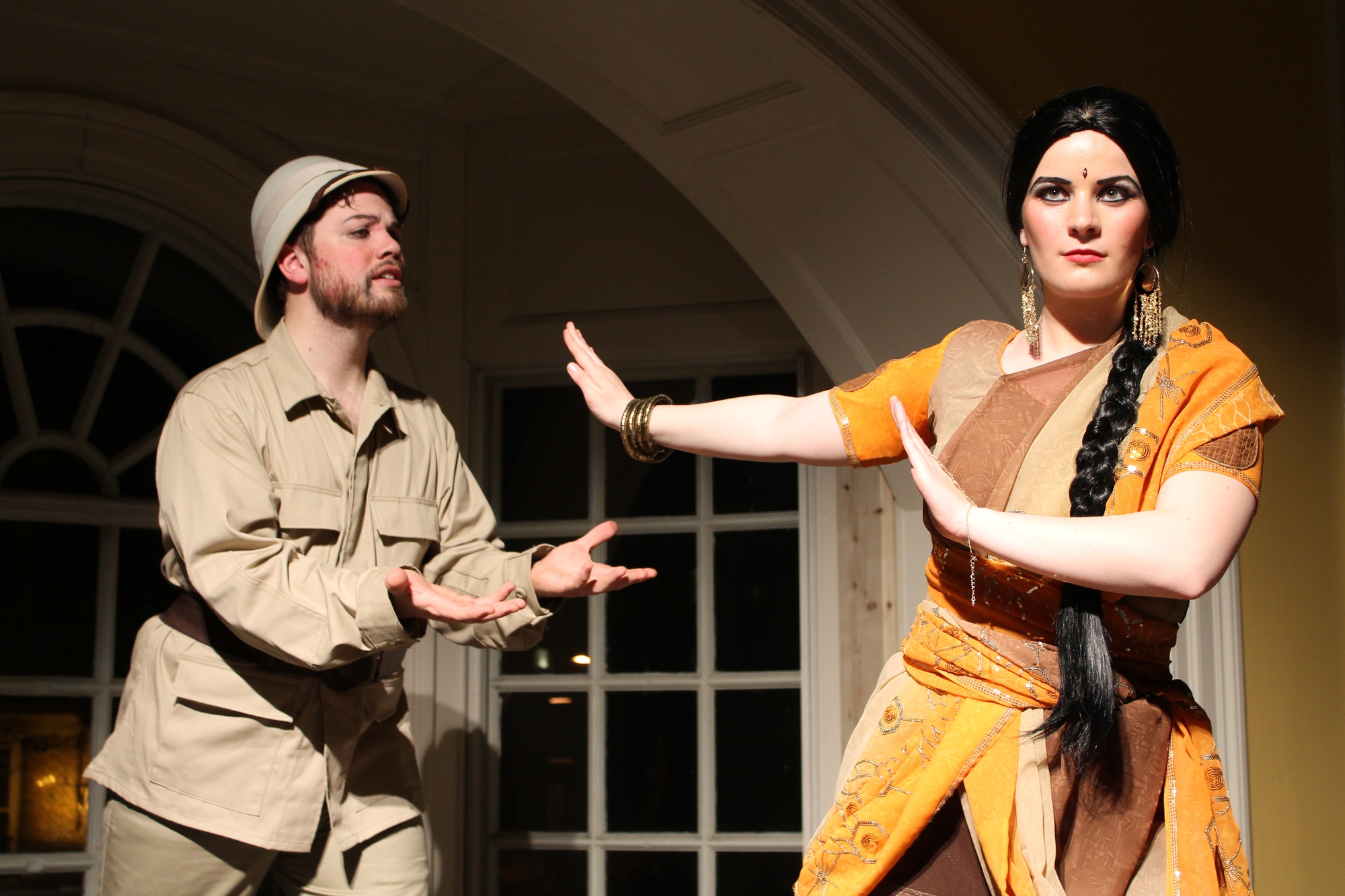
News
Harvard Grad Union Agrees To Bargain Without Ground Rules

News
Harvard Chabad Petitions to Change City Zoning Laws

News
Kestenbaum Files Opposition to Harvard’s Request for Documents

News
Harvard Agrees to a 1-Year $6 Million PILOT Agreement With the City of Cambridge

News
HUA Election Will Feature No Referenda or Survey Questions
“Lakmé” Brings India to the Stage

“The story could be summarized as a star-crossed love story,” Sam R. Moore ’15, producer for Lowell House Opera’s production of “Lakmé,” says. For an opera that explores the conflict that ensues when an Indian woman falls for a British soldier during England’s occupation of India, the description seems apt. For Moore, however, the label fails to entirely capture the opera, and during the show’s run from March 26 to April 5, the cast and production team hopes to create a more comprehensive image.
Stage director Roxanna K. Myhrum ’05 and music director Lidiya V. Yankovskaya work together to bring the story to life—a collaboration that allows for a fuller interpretation of the story, according to Yankovskaya. “You can interpret text in very different ways,” she says. “You can either choose to see what is actually there…or you can instill your blanket understanding.”
For Lowell House Opera, its production's appreciation of both the text and the culture makes the story shine. “What we’re trying to do is portray this setting authentically and these characters as real people instead of cultural stereotypes,” Moore says. Myhrum agrees: “We try to let the most powerful thing on stage be the emotions that the characters are grappling with, and those are the forces of love and hate.”
To cast the story and its characters as the focal point, the staff did extensive research to create accurate historical context. Myrhum says she read texts about Hinduism, worked with a movement consultant who understood the Bharatnatyam, and even researched a festival featured in the opera.
In addition to a historically accurate setting, the production hopes to reevaluate other key aspects of the show. Lakmé, played by Liv A. Redpath ’14 and Robin Farnsley—part of a double cast that allows collaboration between Harvard students and professionals—was interpreted differently compared to past renditions of the character. According to Moore, while earlier productions depict her as a victim, Lowell House Opera hopes to portray her as a strong character. “For me, I really see Lakmé as a young woman who is very colorful with the strength of her convictions,” Myhrum says.
Despite the tweaks made, the production does not stray from the original text. Instead, it hopes to highlight the score and the complex story through singing and dance. “The challenge of this opera was to really find the passion and the action in all of the music,” Myhrum says. As Yankovskaya notes, through this, the cast and crew hope to bring attention to a neglected opera. “The music is beautiful, and it’s a shame the opera is not performed more often.”
Want to keep up with breaking news? Subscribe to our email newsletter.
Most Read
- Harvard Dismisses Leaders of Center for Middle Eastern Studies
- Harvard Agrees to a 1-Year $6 Million PILOT Agreement With the City of Cambridge
- FAS Dean Asks Center Directors To Show Compliance With Viewpoint Diversity Guidance
- 2 Years After Affirmative Action Ruling, Harvard Admits Class of 2029 Without Releasing Data
- Adams House Resident Dean Issues Warning to Student Who Booked Room for AFRO Event
From Our Advertisers

Over 300+ courses at prestigious colleges and universities in the US and UK are at your disposal.

With innovative financial tools combined with financial education, Collegiate empowers students to take control of their finances and build confidence in their money management skills.

Serve as a proctor for Harvard Summer School (HSS) students, either in the Secondary School Program (SSP), General Program (GP), or Pre-College Program.

With an increasingly competitive Law School admissions process, it's important to understand what makes an applicant stand out.

Welcome to your one-stop gifting destination for men and women—it's like your neighborhood holiday shop, but way cooler.

Admit Expert is a premium MBA admissions consulting company, helping candidates secure admission to top B-schools across the globe with significant scholarships.
